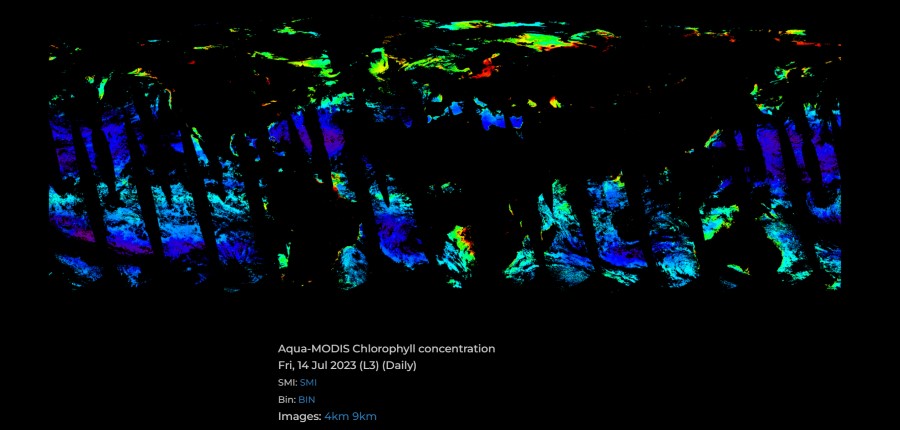The oceans are changing colour, and it's not just because of pollution. In fact, the main reason for the oceans' changing colour is climate change.
The study by the journal Nature revealed that the colour of the ocean is determined by a number of factors, including the amount of sunlight that penetrates the water, the presence of phytoplankton, and the amount of suspended sediment.

Source: NASA
Phytoplankton are microscopic plants that live in the ocean. They contain the green pigment chlorophyll, which helps them to photosynthesise. When there is more phytoplankton in the water, the ocean appears greener.
The journal Nature states: “Climate change is causing alterations in marine ecosystems, and is expected to increasingly cause such changes in the future.”
The study from decades of satellite data has found that 56% of the global ocean has experienced colour change since 2002. The researchers found that tropical ocean regions near the Equator have become steadily greener over time, while no overall pattern was identified for the rest of the ocean.
The study mentions “We generated a 20-year annual time series of MODIS-Aqua Rrs and Chl by extracting the monthly level-3, 4-km Rrs and Chl values from July 2002 to June 2022 from https://oceancolor.gsfc.nasa.gov/l3/.”
BB Cael, scientist at the National Oceanography Centre in Southampton and author of the study published in Nature mentioned to the Guardian that “The reason we care about this is not because we care about the colour, but because the colour is a reflection of the changes in the state of the ecosystem,”
The study's findings suggest that climate change is having a significant impact on the oceans. The warming of the oceans is causing them to hold more carbon dioxide, which is then used by phytoplankton to grow.
As the oceans become greener, they are less able to absorb carbon dioxide from the atmosphere, which could have implications for climate change.
The study's findings also raise concerns about the food web in the oceans. Phytoplankton are a vital food source for many marine animals, and as the oceans become greener, the food web could be disrupted. This could have a cascading effect on other marine life, including fish, birds, and mammals.
In conclusion, immediate action to address climate change should be implemented. By reducing the emissions of greenhouse gases, everyone can help to slow the warming of the oceans and protect the marine ecosystem.
Comments
All Comments (0)
Join the conversation